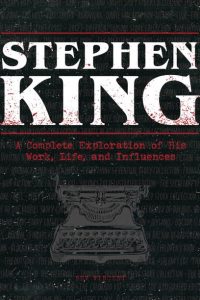Ian Mond Reviews By Force Alone by Lavie Tidhar
 By Force Alone, Lavie Tidhar (Head of Zeus 978-1-838-93127-8, £18.99, 512pp, hc) March 2020. (Tor 978-1250753458, $27.99, 416pp, hc) June 2020.
By Force Alone, Lavie Tidhar (Head of Zeus 978-1-838-93127-8, £18.99, 512pp, hc) March 2020. (Tor 978-1250753458, $27.99, 416pp, hc) June 2020.
Lavie Tidhar has built a career out of not playing it safe. Over the last decade he has written bold, provocative novels that, with a flair for metafiction and inspired by the pulps (both hard-boiled and genre), reimagine Osama bin Laden as a pulp-fiction hero (Osama), cast Hitler as a private detective (A Man Lies Dreaming), and propose an alternate history where the Jewish homeland is established in Uganda (Unholy Land). Alongside Central Station and Martian Sands, these works have dug deep into Tidhar’s cultural background (he was born in Israel; his grandparents were Holocaust survivors) while asking difficult, confronting questions about subjects like colonialism and the price of statehood and sovereignty. Now that Tidhar lives in London, and given the political nature of his work, it’s not entirely surprising that he would shift his focus to the question of nationalism and Brexit. To that end, with his latest novel, By Force Alone, Tidhar takes a mythology the English hold dear, the legend of King Arthur, and goes to town with it.
While the opening page of By Force Alone diverges from Historia Regum Britanniae – Geoffrey of Monmouth’s 12th-century account of the Kings of Briton that first introduces Arthur – by having Uther, rather than his brother, usurp the throne from King Vortigern, the first section of the novel follows many of the same plot-beats laid down by Monmouth. This includes the comet, shaped like a dragon, that Uther spies on the way to battle and, more importantly, Merlin’s role in the birth of Arthur, assisting Uther to deceive and rape Lady Igraine. It’s in the character of Merlin, who is described as “pale and pretty with straw blond hair… [with eyes that] remind one of a cat or a lizard or a snake,” that Tidhar begins to make his mark. Not only does Merlin swear like a trooper (though, to be fair, so does everyone), the wise and kind wizard of legend is replaced by an amoral, half-human creature who thrives on power and dominance. Things go off the canonical rails (in a good way) when Arthur is introduced in Part Two. It’s about 15 years since the death of Uther, and young Arthur, who has no idea of his lineage, is a ruthless, power-hungry gangster and drug-lord running goblin fruit (a powerful narcotic) up and down the mean streets of fifth-century London. This Scorsese (or Peaky Blinders) reframing of Arthur – “Elyan the White’s in charge of mixing, Owain and Geraint package and wrap, Kay does the counting and the numbers” – is the very reason why I read Tidhar’s fiction: it’s playful, yes, but with a seriousness that makes it all the more enjoyable. Tidhar doesn’t stop there. Throughout the novel, and with an assortment of legendary characters to choose from, he presents us with an arms-dealing Lady of the Lake; a Lancelot with crazy kung-fu skills; and a Galahad – known for his purity because “he always puts a sheath upon his sword” – who runs a bar and brothel in Camelot.
For all its foul language and radical deconstruction, of which I’ve provided only a taste (you should see what Tidhar does with the Holy Grail), By Force Alone isn’t a desecration of the Arthurian romances. Instead, he pays homage to the writers and poets – Robert Wace, Chretien de Troyes, Wolfram von Eschenbach, and Thomas Mallory (just to name a few) – who took their turn in adapting and refining Monmouth’s text. As Tidhar points out in his fascinating Afterword to the novel, the great irony about the additions to Monmouth’s “historical” account is that several key aspects of the mythology, namely Lancelot, The Lady of the Lake, and the search for the Holy Grail, wouldn’t exist if not for three European writers – two French and one German. It makes you wonder whether Boris Johnson, as part of the transition phase of Brexit, will hand those elements of the mythology back to the European Union. On that note, while Tidhar has a great deal of fun breaking apart, then sticking together Arthur’s story, he is careful to maintain several historical features of the period, specifically that Arthur’s Britain faced an existential threat from invading Picts, Angles, and Saxons. What this means, and what never occurred to me until I’d read By Force Alone, is that the descendants of Arthur’s enemies have, for nine centuries, co-opted the myth as an embodiment of all that’s English (and by extension white). Tidhar’s argument isn’t that there’s no such thing as national identity, but just as there are multiple versions of Arthur’s story, influenced by writers from France, Germany, and now Israel, no culture or ethnicity is ever as homogenous as it’s depicted. If that’s all sounds a little too deep and meaningful, fear not, because By Force Alone is a jolt of pure entertainment, a brilliant, revisionist blend of magic, crime syndicates, and Kung-fu knights.
This review and more like it in the April 2020 issue of Locus.
 While you are here, please take a moment to support Locus with a one-time or recurring donation. We rely on reader donations to keep the magazine and site going, and would like to keep the site paywall free, but WE NEED YOUR FINANCIAL SUPPORT to continue quality coverage of the science fiction and fantasy field.
While you are here, please take a moment to support Locus with a one-time or recurring donation. We rely on reader donations to keep the magazine and site going, and would like to keep the site paywall free, but WE NEED YOUR FINANCIAL SUPPORT to continue quality coverage of the science fiction and fantasy field.







